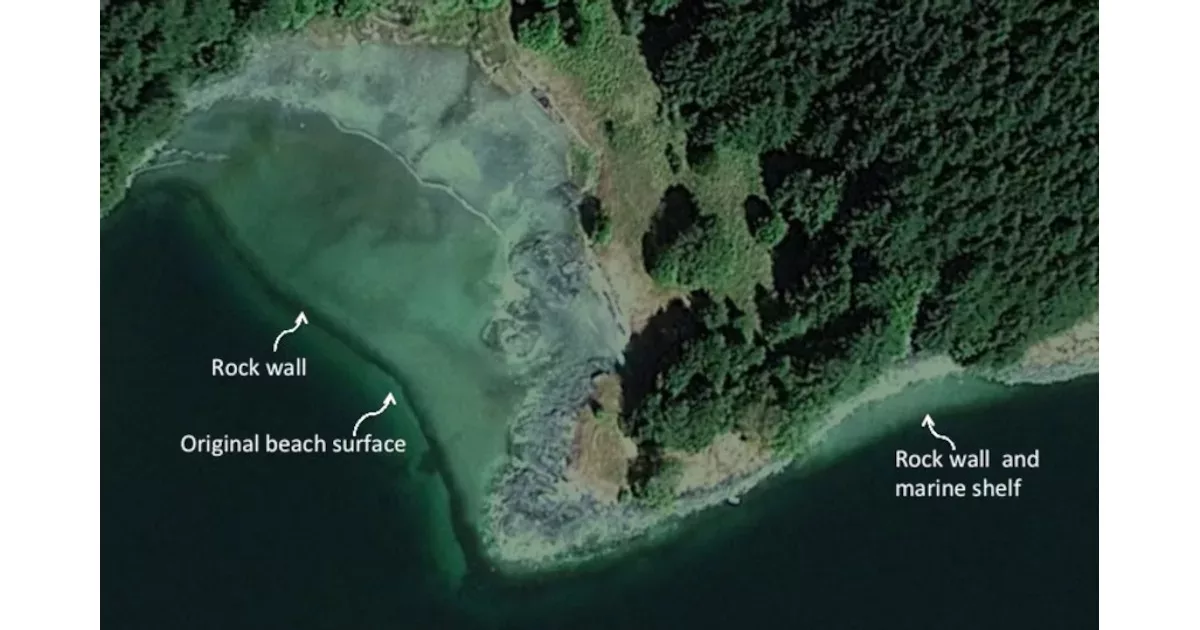The Clam Garden Network
Researchers from academic and non-academic communities explore together the many aspects of clam gardens constructed by coastal First Nations of British Columbia (Canada) and Native Americans of Washington State and Alaska (USA)

Clam gardens are ancient intertidal features constructed by coastal First Nations of British Columbia (Canada) and Native Americans of Washington State and Alaska (USA). The Clam Garden Network is a diverse community of Indigenous and non-Indigenous knowledge holders including academics, community members, researchers, and resource managers from British Columbia, Washington State, and Alaska. Together, we celebrate, promote, and seek to uphold the cultural and ecological importance of clam gardens and traditional seafood management.
Context
Clam gardens enhance the production of culturally important seafoods and have been a part of Indigenous food systems for at least 4,000 years. Today, Indigenous Peoples throughout the Pacific Northwest are reclaiming clam garden construction, management, and related cultural practices to enhance food security and sovereignty, support and assert rights and title in coastal and ocean spaces, and revive ancestral teachings and practices.
Clam gardens and other culturally important beaches have a legacy as places of learning. While out on the shoreline together, elders, youth, and other community members reflect on teachings, observations and stories about marine systems, cultural values, cosmology, economics, and the importance of family.
Method
The Clam Garden Network embraces different ways of knowing, shares ideas, and uses various research approaches, tools, and data to build knowledge about people and intertidal resources. We celebrate, promote and uphold clam gardens because they are a focal point to advance Indigenous rights and governance, intergenerational knowledge, and food security in the face of climate change.
Benefits
Our goals are to:
- build solidarity and cooperation across people, communities and disciplines;
- support clam garden restoration;
- stimulate conversation and learning that challenge predominantly Western ways of doing science and resource management;
- and work in ways that respect Indigenous community selfdetermination and resurgence.
Nicole Smith, independent archaeologist, Victoria, B.C, and Jennifer Silver, University of Guelph
This text has first been published by BRIDGES in a special brochure. BRIDGES in a member of The Earth-Humanity Coalition.
SUBSCRIBE TO OUR NEWSLETTER
To stay up to date with our projects and the development of the EHC
Read more articles

Gérald Perret: “Généthon’s purpose is to develop treatments and deliver them as fast and as widely as possible”
The Généthon laboratory, set up and driven by the association AFM-Téléthon, works to develop gene therapy treatments with patients and

Juan Camilo Serpa: “We are building the LinkedIn of sustainability”
The Sustainaibility Academic Network, SusAN in short, has been launched in March 2025, to create an online discussion and collaboration

François Lamy: “AFM-Téléthon approach to rare diseases treatment is unique”
The AFM-Téléthon association in France funds its own research labs and its own program to find treatment for genetic rare

Leslie King: “EHC is an opportunity to learn, share, and expand influence across borders”
Leslie King works with communities across the United States, tackling environmental and social issues through innovative, participatory approaches Leslie King